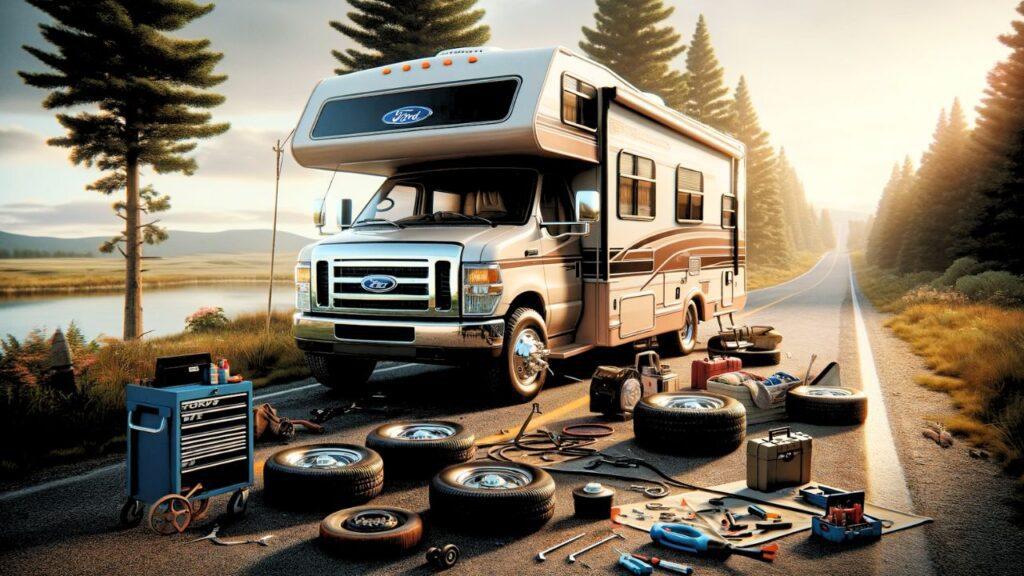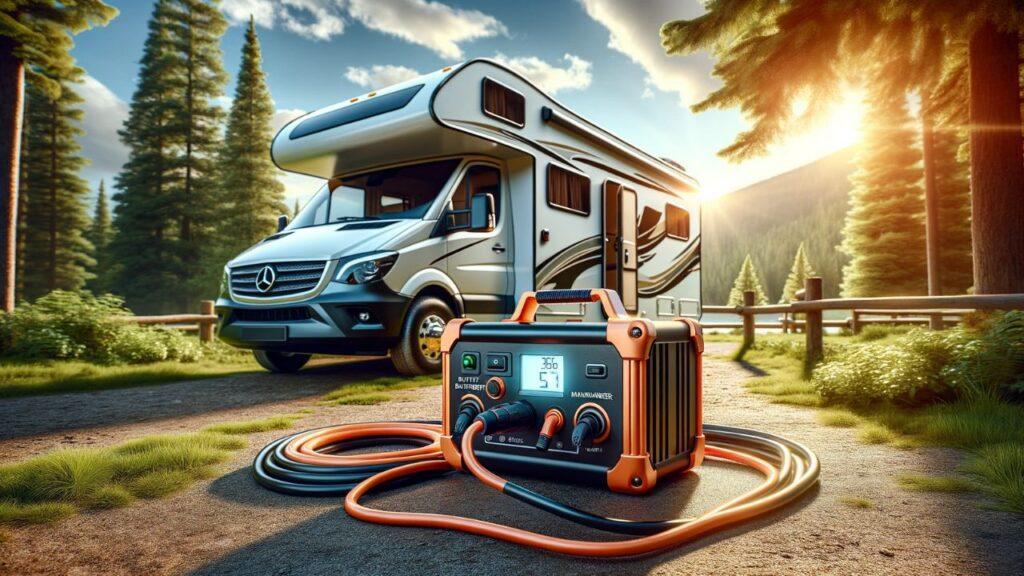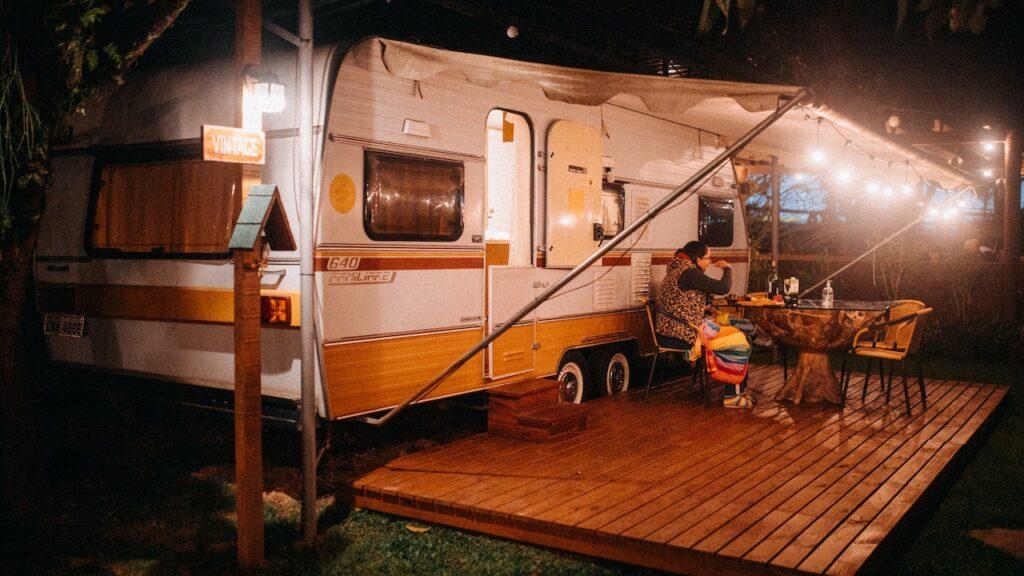
The allure of the open road and the comfort of a home on wheels have made RVs a staple of adventurous living. However, the journey is not without its bumps. Common RV Mechanical Problems often emerge, testing the resolve of even the most seasoned travelers. From the sleek Class A motorhomes to the compact campervans, each type bears its unique set of challenges. Whether it’s the intricate RV electrical systems, the robust engines of luxury motorhomes, or the plumbing intricacies in a travel trailer, these issues are part and parcel of the RV lifestyle. Moreover, enthusiasts embracing the nomadic lifestyle or those planning a RV road trip must be well-versed in these mechanical nuances. Furthermore, understanding these common mechanical hiccups is not just about repairs; it’s about ensuring the longevity and safety of your beloved home-on-wheels. This journey through RV mechanics is not just a lesson in maintenance; it’s a gateway to uninterrupted, blissful travels.
Understanding RV Types and Their Common Issues
Embarking on an RV adventure brings a unique set of challenges and rewards. In this section, we delve into the various RV types and their specific mechanical issues. By understanding these, you can better prepare for and navigate the intricacies of RV maintenance.
Types of RVs: A Quick Overview
RVs come in various shapes and sizes, each designed for specific needs and lifestyles. The robust Class A motorhomes, often likened to luxurious homes on wheels, offer spacious living but demand diligent upkeep. The more compact Class B and C motorhomes blend convenience with maneuverability, making them ideal for those seeking a balance between comfort and ease of travel. Not to be overlooked, Fifth wheels and Travel Trailers offer the flexibility of a detachable living space, popular among seasonal campers and long-haul travelers. Each type, from the luxury motorhomes to the humble travel trailer, brings its unique flavor to the RV experience.
Typical Mechanical Issues Per RV Type
Each RV type, with its distinct build and purpose, faces its own set of mechanical challenges. Class A motorhomes often grapple with issues related to their heavyweight and complex systems, like hydraulic failures or electrical system malfunctions. The smaller Class B and C motorhomes, while easier to navigate, may face challenges with their compact plumbing and electrical systems. Fifth wheels and Travel Trailers are prone to suspension and alignment issues due to their towable nature. Understanding these nuances is crucial for a smooth and enjoyable RV journey.
The journey into the world of RVs is as diverse as it is enriching. Each RV type, from the majestic Class A motorhomes to the practical travel trailers, carries its own set of mechanical idiosyncrasies. Acknowledging and addressing these challenges is not just a part of maintenance; it’s a crucial step towards ensuring a seamless and enjoyable experience on the road. As you navigate through the myriad of options and prepare for your RV adventures, remember that knowledge and preparation are your best tools. Embrace the journey with confidence, knowing that a well-maintained RV is the key to unlocking countless unforgettable journeys and
RV Engine and Transmission Troubles
The heart of an RV’s journey lies in its engine and transmission, where a multitude of problems can arise. In this section, we explore common issues with these critical components, providing insight into early detection and maintenance strategies.
Engine Challenges in RVs
The engine is the powerhouse of an RV, and its health is paramount to a trouble-free journey. Common signs of engine trouble in RVs include unusual noises, overheating, and a noticeable decrease in power or efficiency. These symptoms, often more pronounced in diesel pusher and larger motorhome models, can stem from a range of issues, from simple wear and tear to more severe problems like engine misfires or cooling system failures. Regular engine check-ups and maintenance, especially in luxury motorhomes and full-time RV living setups, are crucial in preventing these problems.
Transmission Complications
The transmission, responsible for transferring engine power to the wheels, is another critical component in RVs. Common transmission issues include difficulty in shifting gears, unusual noises during gear changes, and fluid leaks. These problems, if left unchecked, can lead to more severe complications, especially in RVs used for full-time living or those embarking on extensive RV road trips. Regular inspections and timely maintenance, along with being mindful of signs like gear slippage or delayed engagement, are key to ensuring a smooth and reliable journey.
Understanding the mechanical intricacies of your RV, whether it’s a Class A motorhome or a travel trailer, is essential for a hassle-free adventure. Furthermore, regular maintenance and timely attention to engine and transmission issues can significantly enhance the longevity and performance of your RV. As you embark on your travels, keep these insights in mind for a journey filled with memorable experiences and minimal mechanical setbacks.
RV Electrical Systems and Solutions
Navigating the electrical labyrinth of an RV requires both knowledge and caution. This section illuminates the complexities of RV electrical systems and the pivotal role of sustainable power solutions like solar setups and generators. Understanding these components is crucial for ensuring your RV’s functionality and longevity.
Electrical System Complexities
The electrical system of an RV is its lifeline, powering everything from lights to appliances. Key components include the battery bank, inverter, and circuit breakers. Common issues often involve battery failure, wiring malfunctions, or inverter complications. These problems can range from minor inconveniences to major safety hazards, especially in luxury motorhomes or those used for full-time RV living. Regular electrical inspections are vital to detect and address these issues early.
Solar and Generator Concerns
Solar setups have become increasingly popular in the RV lifestyle, offering a sustainable and cost-effective power source. They reduce reliance on external power and enhance off-grid capabilities. However, they come with their challenges, like maintaining solar panels and ensuring efficient energy storage. Similarly, generators, a staple in many RVs, require regular maintenance to avoid issues like fuel problems or motor failures. A well-maintained generator is essential, particularly for RV boondocking or extended road trips.
Mastering the electrical system of your RV, from its intricate wiring to the maintenance of solar setups kits and generators, is essential for a worry-free adventure. Regular checks and upkeep of these systems not only prevent disruptions but also enhance your RV’s efficiency and sustainability. As you gear up for your travels, let a well-managed electrical system be the foundation of your unforgettable RV experiences.
RV Plumbing and Water System Woes
The plumbing system of an RV is a marvel of compact engineering, essential yet often overlooked. In this section, we explore the common layout of RV plumbing and share critical insights on winterizing these systems, ensuring they remain functional regardless of the season.
Plumbing System Insights
An RV’s plumbing system includes the freshwater tank, grey and black water tanks, pumps, and heating system. Typical issues range from leaks and clogs to pump failures, which can disrupt both travel plans and comfort. Especially in travel trailers and Class C motorhomes, maintaining a functional and efficient plumbing system is key. Regular inspections and prompt repairs can prevent minor issues from escalating into major setbacks.
Winterizing the Plumbing System
Winterizing the plumbing system is crucial for RV owners planning to travel in colder climates or store their vehicles during the off-season. This process involves draining tanks, insulating pipes, and using antifreeze to prevent freezing and cracking. For those living the RV lifestyle year-round, proper winterization is not just a maintenance task; it’s a safeguard against costly repairs and damages. Following a structured winterizing routine is essential for preserving the integrity of your RV’s plumbing system.
A comprehensive understanding of your RV’s plumbing system, from day-to-day maintenance to seasonal winterizing, is vital for uninterrupted journeys. By staying ahead of common plumbing issues and adopting thorough winterization practices, you ensure that your home on wheels remains comfortable and functional, no matter where your travels take you.
Tires, Suspension, and Exterior Maintenance Of RV
The reliability of an RV adventure significantly hinges on the condition of its tires, suspension, and exterior. This section provides a detailed look at maintaining these critical components, ensuring your RV remains roadworthy and resilient in diverse conditions.
Tire and Suspension Care
Proper tire and suspension care are paramount for a smooth and safe RV experience. Regularly check your RV tires for wear, pressure, and alignment to prevent roadside troubles and enhance fuel efficiency. The suspension system, equally crucial, demands attention to ensure your RV handles correctly and comfortably. This is especially important for fifth wheels and travel trailers, where uneven loads can cause significant wear and tear. Routine inspections and timely repairs are key to maintaining these systems.
Exterior RV Upkeep
The exterior of your RV battles the elements, requiring consistent upkeep to maintain its integrity and appearance. Seasonal tasks such as cleaning, checking seals and seams, and applying protective coatings can prevent issues like leaks and rust. This maintenance is crucial, not only for luxury motorhomes but also for smaller campervans and travel trailers, to preserve their value and functionality. Furthermore, regular exterior checks can identify potential problems before they escalate.
Diligent attention to your RV’s tires, suspension, and exterior not only enhances your travel experience but also extends the lifespan of your vehicle. Whether you own a Class A motorhome or a compact camper, these maintenance practices are essential for a trouble-free journey. Embrace these routines as part of your RV adventure, ensuring your travels are as carefree as they are memorable.
RV Safety, Security, and DIY Repairs
Ensuring the safety and security of your RV is as crucial as any other aspect of RV maintenance. This section delves into the vital safety checks, security system options, and the balance between DIY repairs and professional assistance.
Safety Measures and Security Systems
Regular safety checks are critical to prevent accidents and ensure a secure journey. This includes inspecting RV alarms, locks, and fire safety equipment. Additionally, investing in robust security systems, like GPS trackers and motion sensors, can protect your RV from theft or vandalism, a must for those indulging in RV boondocking or long stays at RV parks. These measures are crucial for peace of mind, especially when away from your vehicle.
DIY Repairs and Professional Assistance
While DIY repairs can be cost-effective, knowing when to seek professional help is essential. Simple tasks like replacing filters or fixing minor leaks are manageable for most. However, complex issues, particularly those involving the RV’s electrical system or engine, often require skilled technicians. This balance is particularly important for those living the full-time RV lifestyle or using their RVs for frequent road trips. Regular maintenance, combined with professional inspections, ensures your RV remains in top condition.
Staying on top of RV safety, security, and maintenance is a continuous process that requires both personal involvement and professional expertise. Whether you are a weekend warrior or a full-time traveler, understanding and applying these principles will significantly contribute to a secure and enjoyable RV journey. Keep these tips in mind as you navigate the roads, ensuring your home on wheels is as safe and well-maintained as it is adventurous.
Long-Term RV Living
Embracing the RV lifestyle full-time is an exciting yet complex transition, filled with both freedoms and challenges. This section is dedicated to those considering or already living the dream of long-term RV living, providing insights into the essentials of making this lifestyle sustainable and enjoyable.
Adapting To Full-Time RV Living
Adopting a full-time RV lifestyle demands more than a passion for travel; it requires thorough preparation and adaptability. Challenges include space management, maintaining a consistent budget, and adapting to varying climates and environments. Essentials for a successful transition include a reliable RV, a sound financial plan, and a robust support system, either through the RV community or digital platforms. For families, considering schooling and space for children becomes paramount. Moreover, staying connected through mobile Wi-Fi and ensuring continuous power supply via solar setups or generators are vital for comfort and connectivity.
In wrapping up this section, remember that long-term RV living is not just a change of scenery but a lifestyle overhaul. It demands resilience, flexibility, and a proactive approach to maintenance and problem-solving. Whether you’re driving a Class A motorhome or a compact travel trailer, the joy of full-time RV living unfolds with each mile, bringing new experiences and learning opportunities.
Wrapping Up!
Understanding and addressing RV mechanical problems is crucial for any RV owner, whether embarking on occasional getaways or embracing full-time life on the road. Regular maintenance, awareness of common issues, and proactive problem-solving are essential to ensure your travels are both safe and enjoyable. This journey through RV mechanics is more than just upkeep; it’s about cherishing and preserving your home on wheels.
Additionally, this mindful approach to RV maintenance paints your travels with a brush of confidence and ease. Each resolved mechanical quirk not only enhances your RV’s longevity but also deepens your connection with the journey. It’s a beautiful cycle of learning, adapting, and growing with every turn of the road. So, as you set off on your next adventure, do so with the confidence that comes from responsible RV ownership and maintenance.
FAQs
What are the most common engine problems in RVs?
Common RV engine problems include overheating, oil leaks, and unusual noises, often due to aging or lack of maintenance.
How can I tell if my RV’s transmission is failing?
Signs of RV transmission failure include difficulty shifting gears, strange noises during gear changes, and transmission fluid leaks.
What should I regularly check for in my RV’s electrical system?
Regularly check your RV’s batteries, wiring connections, and circuit breakers to prevent electrical system failures.
Why is regular tire maintenance important for RVs?
Regular tire maintenance is crucial to ensure safety, improve fuel efficiency, and prevent unexpected breakdowns during travel.
How do I winterize my RV’s plumbing system?
Winterize your RV’s plumbing by draining water tanks, using antifreeze in the system, and insulating pipes to prevent freezing.
As outdoor enthusiasts ourselves, we understand the significance of reliable gear that can withstand the elements and support you throughout your journey. We try to provide as much real life information with our guides and how tos to the readers as possible. Our honest and transparent reviews of essential outdoor gadgets and products are rooted in testing and experience. We take great satisfaction in offering unbiased evaluations, ensuring that you can make informed decisions when investing in outdoor gear. As an affiliate website, we may earn a small commission from some of the products we feature. However, rest assured that our opinions are not influenced by this, and your trust is always our top priority.



